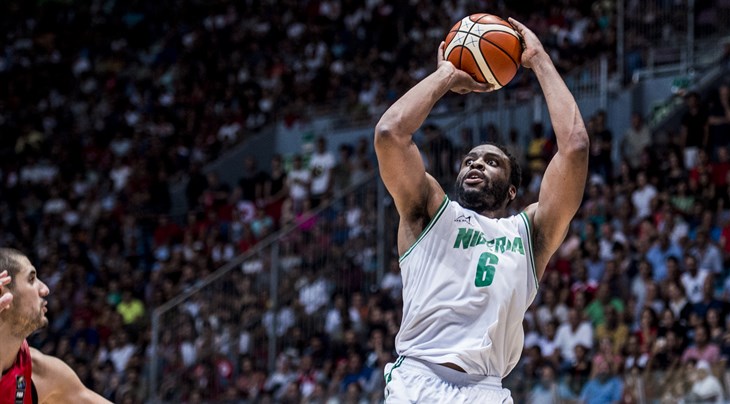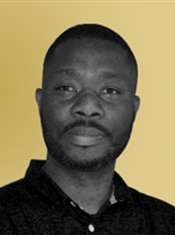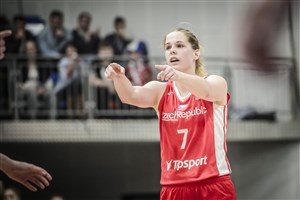
Everything you need to know about February's African Qualifiers
SHEFFIELD (Julio Chitunda's African Message) - Three months on, and the FIBA Basketball World Cup 2019 African Qualifiers are back this week, with eight national teams split into Groups B and D prepared to compete for a place at China 2019.
From February 23-25, Mali will host - in their capital city of Bamako - Nigeria, Uganda, and Rwanda while Mozambique will go up against the Central African Republic (CAF), Cote d'Ivoire and Senegal in Group D.
Back in November, Angola and Tunisia opened their World Cup African Qualifiers campaigns in style by winning all their three games each, and as a result, they currently top Groups A and C, respectively.
In this article, I will try to explain everything you need to know about this week's African Qualifiers.WHAT'S AT STAKE
This week's first-leg of Groups B and D of the African Qualifiers marks the second of six windows of the FIBA Basketball World Cup Qualifiers. And in order to secure a place in the 12-team second-round in the African Qualifiers, teams need to finish in the top-three on their groups. So, a good start this week in Maputo and Bamako could pave way for a place at the 32-team FIBA's flagship event taking place in China from August 31-September 15, 2019.
HOW TO WATCH THE AFRICAN QUALIFIERS
All 24 games will be broadcast on Live Basketball.
PLAYERS TO WATCH
Senegal may head to Maputo without Gorgui Dieng and Maurice Ndour, but the No. four team in Africa will count on seven players from last year's FIBA AfroBasket, including Hamady Ndiaye, Mouhammad Faye, and Youssoufa Ndiaye - the guy who shattered a backboard against Nigeria at FIBA AfroBasket 2017.
Runners-up at FIBA AfroBasket 2017, Nigeria are "richly blessed with lots of talented players who are willing to represent the country," as head coach Alex Nwora recently said. The former African champions have announced an 18-player preliminary squad, which includes their top three scorers from last year's AfroBasket in the form of MVP Ike Diogu, Ikenna Iroegbu, and Ikechukwu Nwamu.Often described as a talented team, Group B hosts Mali are making sure to live up to their accolades. They kept only four players from the last edition of FIBA Africa's premier basketball tournament. Among the AfroBasket 2017 'survivors' is Ibrahim Djambo. Mali called-up Souarata Cisse - who led the team in scoring at FIBA AfroBasket 2015 -, big man Drissa Ballo and Mamadou Sy, who last featured for Mali in 2011.
DTigers not afraid of Mali
— #NBBF (@nbbfonline) February 19, 2018
The assistant coach of D’Tigers, Abdulrahman Mohammed is unfazed about the threat of hosts of this weekend’s 2019 FIBA World cup qualifier series, Mali.#nbbf #AFASports #FIBAWC #ThisIsMyHouse @BasketMalien pic.twitter.com/hKKVeEzNEb
If all goes according to plan, Cote d'Ivoire playmaker Souleymane Diabate - who has become an emblematic member for the 'Elephants' in recent years - will be joined by Guy Edi, Charles Abouo, and Frejus Zerbo - an experienced trio who last featured for the Ivoirians in 2013.
WHO COACHES WHO
While most teams involved in this week's African Qualifiers kept their coaching staff from last year's FIBA AfroBasket, Mali signed Frenchman Remi Giuitta, Senegal appointed former international Abdourahmane Ndiaye while Italian Paolo Povia Miller replaced Hugues Occansey at the helm of Cote d'Ivoire.
Other coaches include Spaniard Inaki Garcia (Mozambique), Ulrich Marida (CAF), Mandi Juruny (Uganda), Alex Nwora (Nigeria), and Moise Mutokambali (Rwanda).
Let the battle begin.
Julio Chitunda
FIBA
FIBA's columnists write on a wide range of topics relating to basketball that are of interest to them. The opinions they express are their own and in no way reflect those of FIBA.
FIBA takes no responsibility and gives no guarantees, warranties or representations, implied or otherwise, for the content or accuracy of the content and opinion expressed in the above article.

















